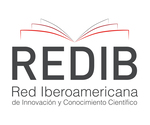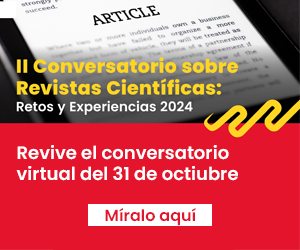Participantes no processo editorial
a) O autor e a contribuição da autoria
O manuscrito submetido a Revista Médica Herediana (RMH) deve indicar como autores aqueles que estiveram envolvidos no planeamento, investigação, redação e aprovação do manuscrito, e que são também responsáveis pelo conteúdo da publicação. Para uma melhor identificação da autoria, sugere-se o cumprimento dos quatro critérios recomendados pelo ICMJE:
- Contribuir substancialmente para a concepção ou desenho do manuscrito, ou para a aquisição, análise ou interpretação dos dados.
- Redigir ou rever criticamente o conteúdo do manuscrito.
- Aprovar a versão a ser publicada.
- Assumir a responsabilidade por todos os aspectos do manuscrito, assegurando que as questões relativas à exatidão ou integridade de qualquer parte do trabalho são adequadamente investigadas e resolvidas.
É de a responsabilidade coletiva dos autores determinar se todas as pessoas nomeadas como autores cumprem estes critérios. A ordem em que os autores são listados no manuscrito deve ser decidida pelos envolvidos; a revista não alterará a ordem dos autores ou determinará quem se qualifica como autor ou arbitrará possíveis conflitos de autoria.
A contribuição que cada autor deu para a preparação do manuscrito deve ser definida fielmente. Esta será registada na secção "Contribuição de autoria" e apenas serão utilizadas as iniciais do primeiro e último nome. O autor responsável pela comunicação com a revista é responsável por verificar se a contribuição da autoria está presente no ficheiro final. Se necessário, imediatamente a seguir à secção "Contribuição da autoria", pode ser acrescentada uma secção de "Agradecimentos", onde se agradece a qualquer pessoa importante para a publicação do manuscrito e que não se qualifique como autor.
Além disso, deve ser identificada e declarada a existência de conflitos de interesse, tais como: relações financeiras, de consultoria, institucionais, pessoais, ideológicas, académicas e outras que possam constituir um potencial conflito de interesse em relação ao artigo. Caso exista algum conflito, os autores envolvidos devem declará-lo no manuscrito; e caso não exista, deve constar: "Cada autor declara que não possui nenhum vínculo que possa representar um conflito de interesses em relação ao artigo submetido". Uma carta de Declaração de Financiamento e Conflito de Interesses deve também ser submetida juntamente com o manuscrito (ver Diretrizes para Autores).
b) Os avaliadores
A RMH convida especialistas para constituírem as suas comissões de revisão, tendo em consideração a temática abordada no manuscrito, bem como a avaliação do seu percurso profissional e ético. Asseguram ainda a inexistência de potenciais conflitos de interesse e garantem que os revisores têm acesso ao manuscrito completo em tempo útil, incluindo material suplementar (caso exista), sejam figuras ou outros, bem como uma ficha de avaliação na qual o revisor expressará os seus comentários e veredito.
Por seu lado, os revisores que aceitem o convite da RMH compromete-se a realizar uma avaliação objetiva, crítica, construtiva e construtiva dentro do prazo acordado, bem como a manter a condição de inédito dos manuscritos, pelo que devem abster-se de expor publicamente a informação neles contida, de carregar os manuscritos em software ou outras tecnologias de inteligência artificial onde a sua confidencialidade não possa ser assegurada, bem como de fazer uso pessoal das ideias dos autores do manuscrito antes da publicação. Os revisores devem informar o editor-chefe da detecção de práticas pouco éticas nos manuscritos, se reconhecerem a identidade dos autores ou se detectarem um possível conflito de interesses. Nestes casos, os revisores devem interromper a sua avaliação.
Como forma de agradecimento pelo valioso trabalho dos revisores, a RMH emite um documento de reconhecimento da sua participação no final do processo editorial do número em que colaboraram.
c) O Editor-chefe e o conselho de redação
As decisões editoriais da RMH baseiam-se na relevância dos manuscritos, na sua originalidade e na sua contribuição para a literatura médica nacional e internacional. Procura-se garantir que a imparcialidade prevaleça em todos os momentos dessas decisões, sem influência de interesses comerciais, relações ou agendas pessoais. Da mesma forma, os editores procuram satisfazer as necessidades de informação da comunidade académica, assegurando a qualidade editorial dos artigos publicados. Inclui também o aperfeiçoamento e a inovação da RMH, e a atualização das suas políticas éticas e das orientações para os autores.
O Editor-Chefe é responsável pela decisão final sobre o estatuto dos manuscritos, bem como pela verificação, em primeira instância, de que não apresentam um potencial conflito de interesses, conforme declarado neste documento. O Editor-Chefe abstém-se de tomar qualquer decisão que possa envolver um potencial conflito de interesses e confiará nos membros do conselho editorial da revista para a sua resolução.
O editor-chefe compromete-se a preservar o estatuto de manuscrito inédito durante todo o processo editorial, sem divulgar resultados preliminares, conclusões ou quaisquer dados, informações ou análises; além disso, garante a confidencialidade dos nomes dos revisores e dos autores durante a fase de revisão por pares. O editor-chefe, em conjunto com o conselho editorial, coordena os manuscritos que prosseguirão para as fases seguintes do processo editorial; é responsável por receber todas as alegações de má prática e socializá-las com o conselho editorial na procura de uma resolução justa.
Os membros do conselho editorial da revista participam nas decisões editoriais e são responsáveis pela salvaguarda das diferentes fases do processo editorial, zelando pelos aspectos éticos e pelas boas práticas editoriais em coordenação com o editor-chefe, de forma a manter a qualidade, integridade e credibilidade da revista na comunidade científica. Têm o poder de solicitar esclarecimentos sobre um manuscrito, sugerir a sua rejeição ou retirada, publicar retificações e desculpas quando necessário.
O conselho editorial compromete-se a manter o estatuto de inédito dos manuscritos, a não expor publicamente a informação neles contida, a não carregar os manuscritos em software ou outras tecnologias de inteligência artificial em que a sua confidencialidade não possa ser assegurada e a não fazer uso pessoal das ideias dos autores dos manuscritos antes da publicação ou a não utilizar a informação contida nos manuscritos para benefício pessoal. Além disso, fornecem uma descrição atualizada das suas relações ou atividades profissionais ao editor-chefe, a fim de evitar potenciais conflitos de interesses relativamente aos seus juízos editoriais.
O editor-chefe ou os membros do conselho editorial que submeterem um manuscrito à RMH serão afastados de todas as discussões e decisões sobre o manuscrito, assumindo outro membro da revista a administração do seu processo editorial.
Por fim, os editores convidados comprometem-se a seguir as mesmas disposições.
d) Tecnologia asistida por inteligência artificial (IA)
Com base na transparência, ao submeter seu trabalho, os autores devem indicar se utilizaram tecnologias assistidas por Inteligência Artificial (IA), como Large Language Model (LLM), chatbots ou criadores de imagens na produção do trabalho submetido. Os autores que utilizam tais tecnologias devem descrever, tanto na carta de apresentação quanto no trabalho submetido, na seção correspondente, como as utilizaram. Se a IA foi usada para assistência à escrita, isso deve ser descrito na seção de agradecimentos.
Se a IA for usada para coleta, análise ou geração de figuras ou gráficos, os autores devem descrever esse uso nos métodos. Chatbots (como o ChatGPT) não devem ser listados como autores, pois não podem ser responsabilizados pela precisão, integridade ou originalidade do trabalho, e essas responsabilidades são necessárias para a autoria. Portanto, os indivíduos são responsáveis por qualquer material enviado que inclua o uso de tecnologias assistidas por IA. Os autores devem ser capazes de atestar a ausência de plágio em seu artigo, incluindo citações no texto e imagens geradas por IA.
Da mesma forma, editores e revisores devem informar os autores e uns aos outros sobre qualquer uso de chatbots na avaliação do manuscrito e na geração de revisões e correspondências.
Atualizado: 26/04/2025



















